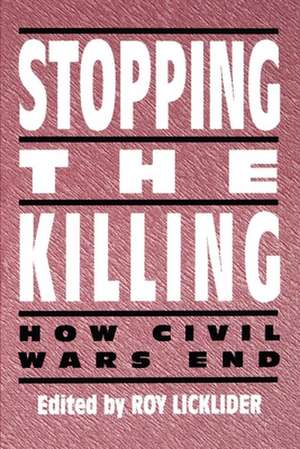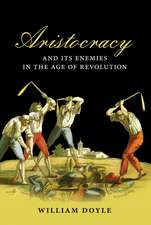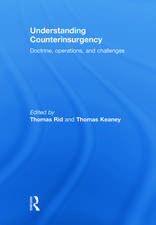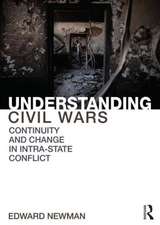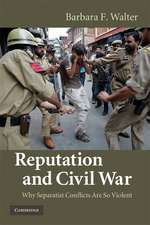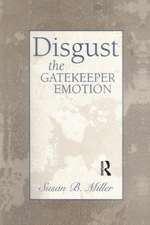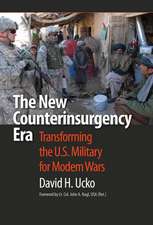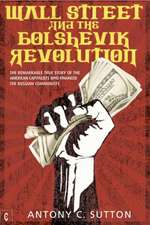Stopping the Killing – How Civil Wars End
Autor Roy Licklideren Limba Engleză Hardback – 30 apr 1993
And yet, civil wars do inevitably end. England is no longer criss-crossed by warring armies representing York and Lancaster or King and Parliament. The French no longer kill one another over the divine right of kings. Argentines seem reconciled to living in a single state, rather than several. The ideologies of the Spanish Civil War now seem largely irrelevant. And the possibility of Southern secession is an issue long-buried in the American past.
The question then begs itself: how do people who have been killing one another with considerable enthusiasm and success come together to form a common government? How can individuals and factions work together, politically and economically, with others who have killed their friends, parents, children and lovers? How are armed societies disarmed? What effect does a total military victory have on a lasting peace? In sum, how are civil societies constructed from civil violence and chaos? This is the central concern of Stopping the Killing.In this highly original and much needed volume, a distinguished group of experts on civil wars discuss both specific conflicts and broader theoretical issues. Individual chapters examine civil wars in Colombia, the Sudan, Yemen, America, Greece, and Nigeria, and analyze the causes of peace, the relationship between the battlefield and the negotiating table, and issues of settlement. An introduction and conclusion by the editor unify the volume. Contributors include: Jonathan Hartlyn (Univ. of North Carolina), Caroline Hartzell (Univ. of California, Davis), Jane E. Holl (U.S. Military Academy), John Iatrides (Southern Connecticut State University), James O'Connell (University of Bradford), Donald Rothchild (Univ. of California, Davis), Stephen John Stedman (Johns Hopkins Univ.), Robert Harrison Wagner (Univ. of Texas, Austin), Harvey Waterman (Rutgers Univ.), Manfred Wenner (Northern Illinois Univ.), and I. William Zartman (Johns Hopkins Univ.).
| Toate formatele și edițiile | Preț | Express |
|---|---|---|
| Paperback (1) | 245.10 lei 43-57 zile | |
| Wiley – 28 feb 1995 | 245.10 lei 43-57 zile | |
| Hardback (1) | 531.34 lei 43-57 zile | |
| MI – New York University – 30 apr 1993 | 531.34 lei 43-57 zile |
Preț: 531.34 lei
Preț vechi: 690.05 lei
-23% Nou
Puncte Express: 797
Preț estimativ în valută:
101.70€ • 110.51$ • 85.49£
101.70€ • 110.51$ • 85.49£
Carte tipărită la comandă
Livrare economică 21 aprilie-05 mai
Preluare comenzi: 021 569.72.76
Specificații
ISBN-13: 9780814750704
ISBN-10: 0814750702
Pagini: 366
Dimensiuni: 163 x 241 x 26 mm
Greutate: 0.66 kg
Ediția:New.
Editura: MI – New York University
ISBN-10: 0814750702
Pagini: 366
Dimensiuni: 163 x 241 x 26 mm
Greutate: 0.66 kg
Ediția:New.
Editura: MI – New York University
Recenzii
"A good primer on what will almost certainly be the major foreign policy problem of our time."
--Contemporary Sociology
--Contemporary Sociology
Textul de pe ultima copertă
How then do people who have been killing one another with considerable enthusiasm and success come together to form a common government? How can individuals and factions work together, politically and economically, with others who have killed their friends, parents, children, and lovers? How are armed societies disarmed? What effect does a total military victory have on a lasting peace? In sum, how are civil societies constructed from civil violence and chaos? Stopping the Killing travels from Latin America and the United States to Africa and the Middle East to grapple with this critical issue.
